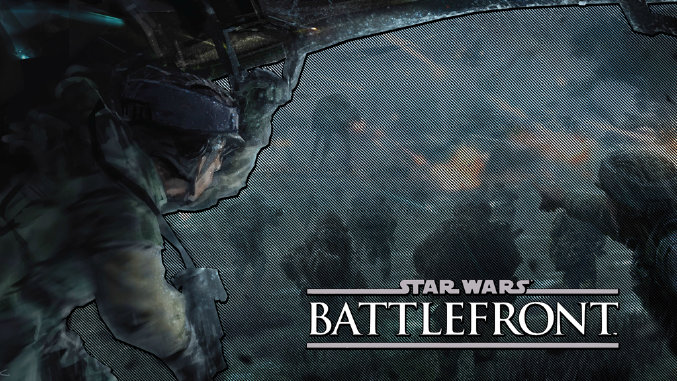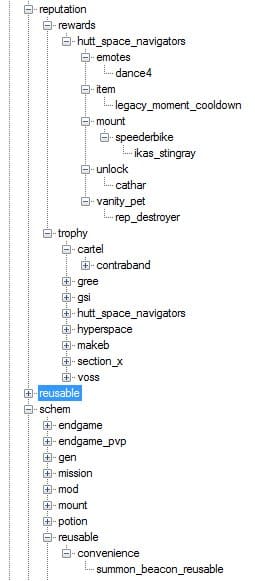Massively Multiplayer Online Role-Playing Games (MMORPGs) have evolved significantly over the past few decades, incorporating a variety of elements to enhance gameplay and player engagement. One such element that has gained prominence is gambling, which, when implemented effectively, can add an exciting layer of unpredictability and risk to the gaming experience. This article will delve into a comparative analysis of gambling in Star Wars: The Old Republic (SWTOR) and other popular MMORPGs, focusing on their implementation and player interaction.
Gambling in SWTOR
SWTOR, developed by BioWare and published by Electronic Arts, is a MMORPG that stands out for its rich narrative and immersive Star Wars universe. One of the unique features of SWTOR is the inclusion of gambling, particularly through the Nar Shaddaa Nightlife event. During this event, players can participate in virtual slot machine games, using in-game currency to purchase tokens. The outcomes are unpredictable, with the possibility of winning rare items, thus adding an element of thrill and suspense.
The gambling aspect in SWTOR is well-integrated into the game’s lore and setting. It is not a mandatory part of the game, but an optional activity that players can engage in if they wish. This allows players who enjoy gambling to partake, while not forcing those who prefer to avoid it.
Gambling in Other MMORPGs
In contrast, let’s look at other MMORPGs and their approach to gambling. World of Warcraft (WoW), for instance, does not have direct gambling mechanics. However, it does have a complex economy and auction house system where players can speculate on item prices, which can be seen as a form of indirect gambling.
Final Fantasy XIV, on the other hand, features the Gold Saucer, an entertainment hub where players can participate in various games of chance and skill. These games, while not strictly gambling, do offer the chance to win rare items and currency, similar to SWTOR’s Nightlife event.
Guild Wars 2 offers a different take on gambling with its Mystic Forge, where players can throw in items and receive a random item in return. The risk and reward system here is quite similar to a gamble, as players can potentially lose valuable items or gain even more valuable ones.
Player Interaction and Impact
The implementation of gambling in MMORPGs has a significant impact on player interaction. In SWTOR, the Nightlife event encourages socialization as players congregate in the casinos, fostering a sense of community. Similarly, the Gold Saucer in Final Fantasy XIV becomes a social hub during events.
However, the impact of gambling on the game’s economy cannot be overlooked. In games like SWTOR and Guild Wars 2, the potential to win rare items can inflate the in-game economy, leading to disparities in wealth among players. This can lead to a pay-to-win scenario, where players who spend more real-world money have an advantage.
Conclusion
In conclusion, the incorporation of gambling in MMORPGs like SWTOR, Final Fantasy XIV, and Guild Wars 2 adds an extra layer of excitement and unpredictability to gameplay. However, it’s a double-edged sword that can potentially disrupt game balance and economy. As such, game developers need to tread carefully when implementing such mechanics, ensuring they enhance the gaming experience without detracting from the overall balance and fairness of the game.
Frequently Asked Questions (FAQ)
Q1: What is gambling in MMORPGs? A: Gambling in MMORPGs refers to game mechanics that involve risk and reward, where players can wager in-game currency or items for a chance to win something of greater value. This can take the form of slot machines, lottery systems, or even speculative trading.
Q2: Does Star Wars: The Old Republic (SWTOR) have gambling? A: Yes, SWTOR features a gambling event known as the Nar Shaddaa Nightlife, where players can use in-game currency to play on virtual slot machines for a chance to win rare items.
Q3: Does World of Warcraft (WoW) have gambling? A: WoW does not have direct gambling mechanics. However, it does feature a complex economy and auction house system where players can speculate on item prices, which can be seen as a form of indirect gambling.
Q4: How does gambling in Final Fantasy XIV work? A: Final Fantasy XIV features an entertainment hub called the Gold Saucer, where players can participate in various games of chance and skill. While not strictly gambling, these games do offer the chance to win rare items and currency.
Q5: How does gambling affect the economy in MMORPGs? A: The potential to win rare items through gambling can inflate the in-game economy, leading to disparities in wealth among players. This can sometimes lead to a pay-to-win scenario, where players who spend more real-world money have an advantage.
Q6: Is gambling in MMORPGs legal? A: Yes, as long as the gambling involves in-game currency or items and not real-world money. However, the legality can vary depending on the country and its laws related to online gaming and gambling.
Q7: Can I avoid gambling in MMORPGs? A: Yes, in most MMORPGs, gambling is an optional activity. Players can choose to participate or avoid it based on their preference.
Q8: How can gambling enhance the gaming experience in MMORPGs? A: Gambling can add an extra layer of excitement and unpredictability to gameplay. It can also encourage socialization as players congregate in areas where gambling activities take place, fostering a sense of community.
Q9: What are the potential downsides of gambling in MMORPGs? A: While gambling can enhance gameplay, it can also disrupt game balance and economy. It can lead to disparities in wealth among players and potentially create a pay-to-win scenario.
Q10: How do game developers balance the implementation of gambling mechanics? A: Game developers need to ensure that gambling mechanics enhance the gaming experience without detracting from the overall balance and fairness of the game. This can involve limiting the frequency of gambling events, controlling the distribution of rewards, and monitoring the impact on the in-game economy.







